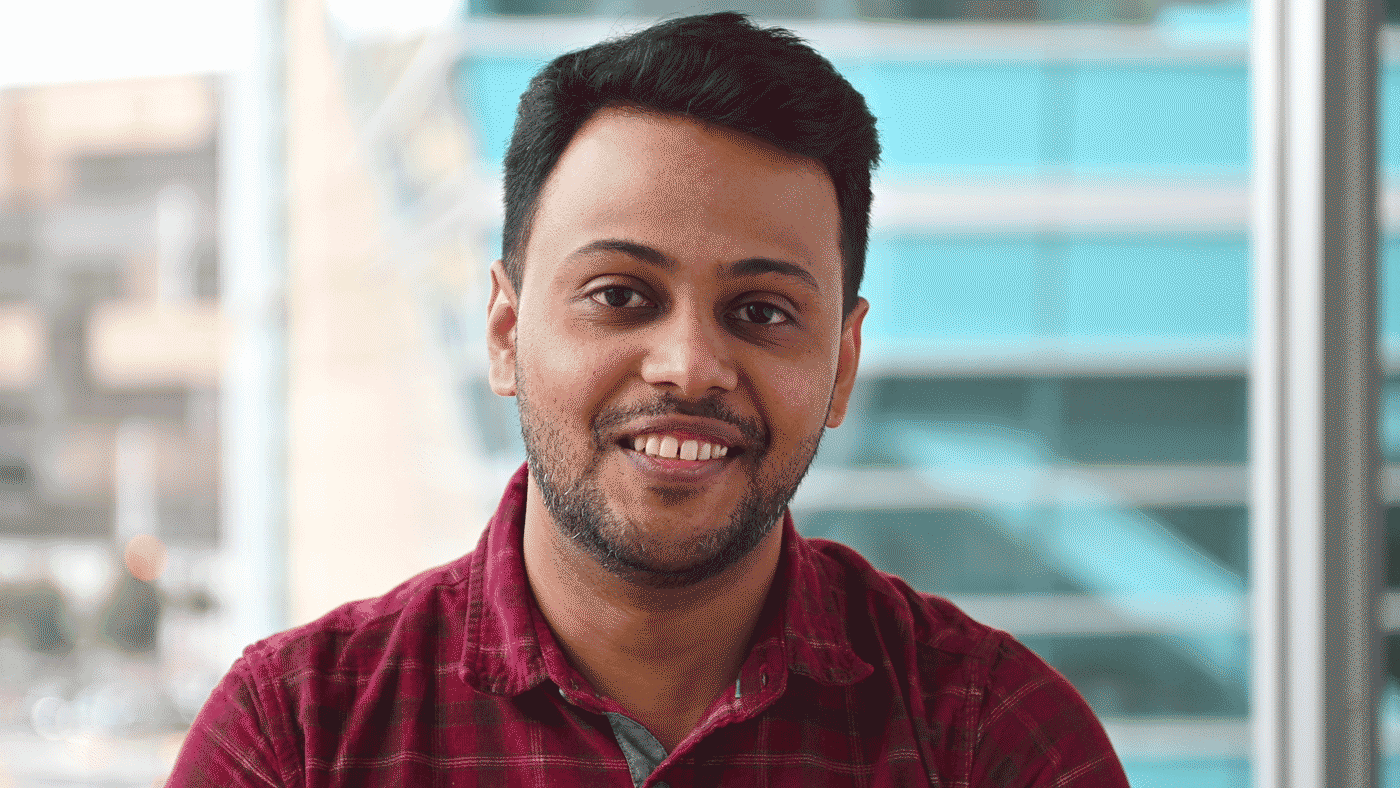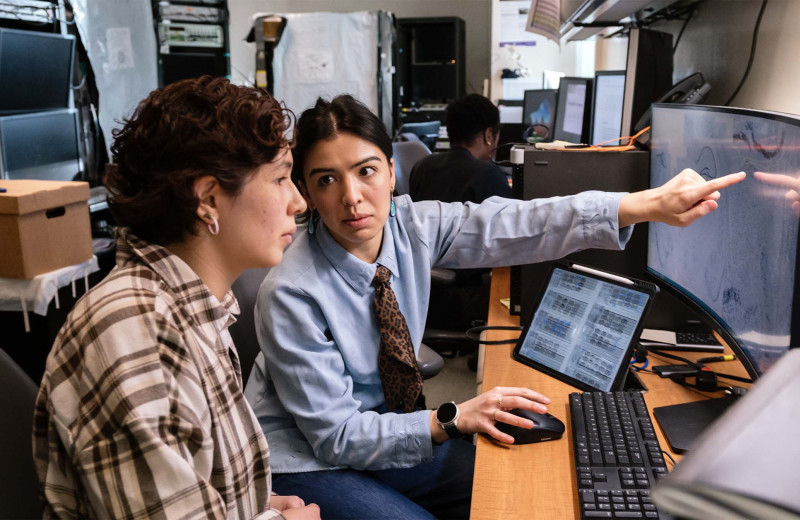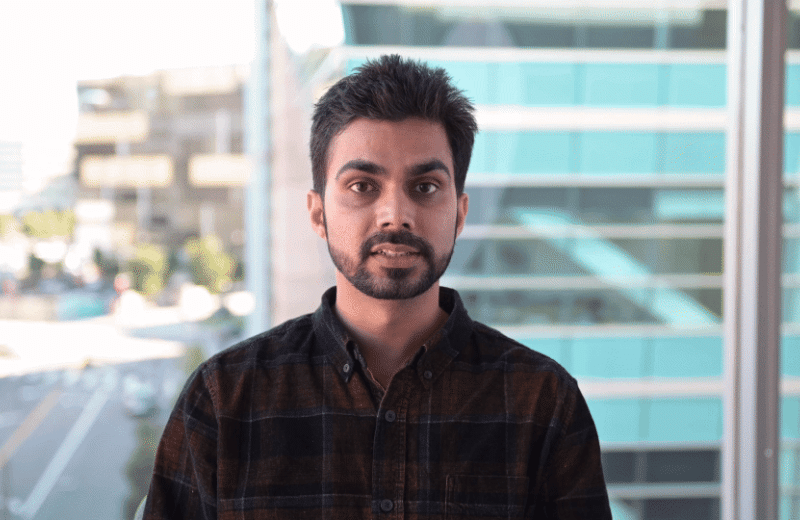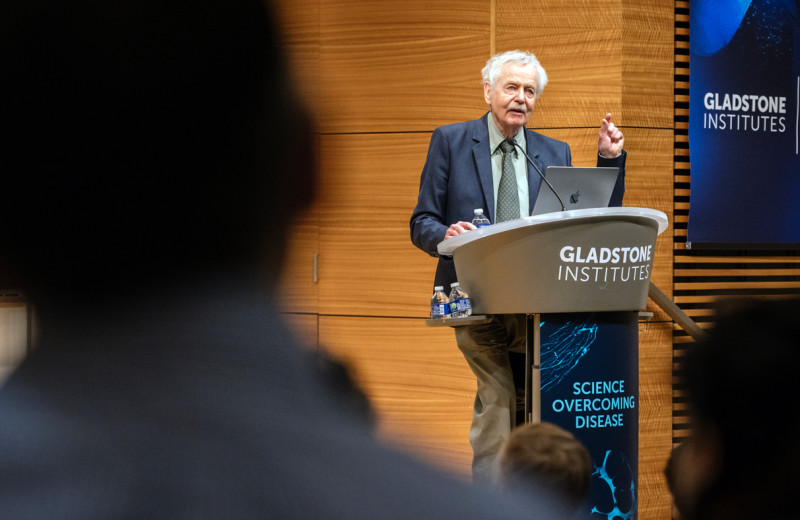Gladstone NOW: The Campaign Join Us on the Journey✕

Aditya Naik describes how visiting his mother working in a hospital impacted his interest in science.
Born and raised in Mumbai, India, Aditya Naik (he/him) is a lab manager for the Pelka Lab at Gladstone Institutes. After completing bachelor’s and master’s degrees in biotechnology, he went on to work in research and development at biotech companies. Through this experience, he developed a passion for lab management and administration. While pursuing his MBA, he started working as an assistant lab manager and eventually moved on to start as the lab manager for Karin Pelka’s newly formed lab at Gladstone.
What brought you to Gladstone?
I was working as an assistant manager at a biotech company in India. Together with research and development, I handled various roles and responsibilities related to lab functioning. I gradually developed an inclination toward lab management, and therefore decided to grow as a full-time lab manager.
I started searching for potential opportunities and I met Karin Pelka, a new Gladstone investigator at the time, who wanted to set up her own lab. Our goals complemented each other, and I took the next flight to San Francisco to join her team.
What do you like about Gladstone?
I enjoy the collaborative work environment. I always feel comfortable reaching out to anyone to discuss science and share ideas. In addition, Gladstone’s employee-friendly policies, structured approach of cross-functional teams, and support staff makes us feel like we’re not working in an academic institution.
Were you interested in science as a child?
When I was a kid, I used to visit my mother’s hometown often. At that time, I was motivated to be a commando since everyone on my mother’s side of the family had served the Indian army. Later, after attending high school, my interests shifted toward biology. Living in the financial capital of the country, this interest evolved, since Mumbai is home to some of the premier science institutes of India.
Why did you decide to go to graduate school?
I decided to go to grad school to upgrade my career in biotechnology. I wanted to delve deep into this discipline and explore various research opportunities the field can offer that also align with my passions.
Can you describe your current research project?
Our body’s defense mechanism functions through immune cells. However, these cells don’t work in isolation—they work in a highly organized and coordinated manner with other cells and tissues. While the healthy human tissue is well organized, human tumors are highly disorganized and how immune cells function in these environments is not well understood. Our lab focuses on understanding immune hubs—multicellular interaction networks within human tumors—to unleash the full potential for cancer immunotherapy.
Did the pandemic change your work?
Not really. When the pandemic happened, I was working in a biotech company in Mumbai. They always say that Mumbai is a city that never stops or sleeps. Indeed, although the world paused with the pandemic, the pharma companies were working round the clock. The thing I realized during the pandemic is that whatever happens in the outside world, research for finding a cure will always go on.
What or who influenced your decision to work in science?
My mother. She used to work in a hospital. During my summer vacations, I used to visit her during her break. It was then that I got introduced to the world of science and medicine. As a child, I was fascinated by seeing patients being cured by doctors, as if it was some kind of magic, and I further decided to walk on the path of science.
What do you do when you are not working?
I love hiking and playing indoor games. Since I am new to San Francisco, I enjoy exploring different places in the city in my free time.
If you could learn to do anything, what would it be?
Surfing. San Francisco has a beautiful coastline. I’m a beach person and surfing would be the best thing I can think of to explore it.
What is your hidden or unique talent?
Keeping things organized. I am not sure if that’s unique though, but this hidden feature in me, probably inherited through my father, has helped me throughout my life.
Want to Join the Team?
Our people are our most important asset. We offer a wide array of career opportunities both in our administrative offices and in our labs.
Explore CareersVoices of Outstanding Mentorship
Voices of Outstanding Mentorship
Three recipients of Gladstone’s Outstanding Mentoring Award share their personal approaches to mentorship and reflect how this passion has shaped their own growth as leaders.
Profile Roan Lab Graduate Students and PostdocsMeet Gladstone: Shyam Jinagal
Meet Gladstone: Shyam Jinagal
Shyam Jinagal explores how genetics, aging, and regeneration shape the heart—and how those insights could one day restore heart function after injury.
Graduate Students and Postdocs Profile Cardiovascular Disease Srivastava LabA Sculptor of Modern Regenerative Medicine
A Sculptor of Modern Regenerative Medicine
Among his myriad accomplishments, Rudolf Jaenisch—winner of the 2025 Ogawa-Yamanaka Stem Cell Prize—was the first to demonstrate the potential of induced pluripotent stem cells to treat disease.
Awards Ogawa Stem Cell Prize Profile Regenerative Medicine Stem Cells/iPSCs



